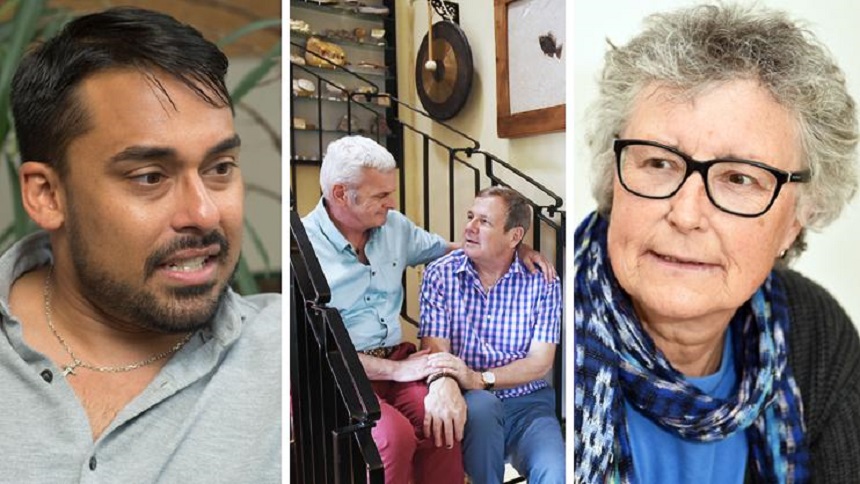LGBT priorities
Alzheimer's Society's Natasha Howard explains our latest work supporting LGBT people affected by dementia.

Some people ask why we need a project to explore the needs of people affected by dementia who are lesbian, gay, bisexual or trans (LGBT). Many of the challenges that dementia presents to LGBT people are the same as those faced by everyone else. However, some are unique.
Supporting people with dementia should involve understanding an individual's life story, preferences and needs, as well as recognising the people who are most important to them.
'We want to find solutions that make a real difference for LGBT people, and which could be put into practice more widely.'
Older LGBT people often experience stigma, having lived through times when they were treated as criminal or unwell. They may feel forced back into the closet, or their dementia could mean they believe they're still living in those times. Even now, LGBT people face prejudice and a lack of understanding among some people providing health and social care.
We want to find solutions that make a real difference for LGBT people, and which could be put into practice more widely.
Throughout February and March, we are meeting people to discuss and prioritise the needs of LGBT people affected by dementia, before working together on how to address them. The perspectives of people with first-hand experience are vital, so please get in touch if you could be a part of this.


Lauri Massey
saysMy partner has been diagnosed with cognitive impairment; 3 of her older siblings have Alzheimer's. Living in Springfield, Missouri, (the bible belt) I am quite isolated when it comes to receiving support from other caregivers. I would love to find an online LGBT caregivers support group. I think this would be the safest way to receive support.